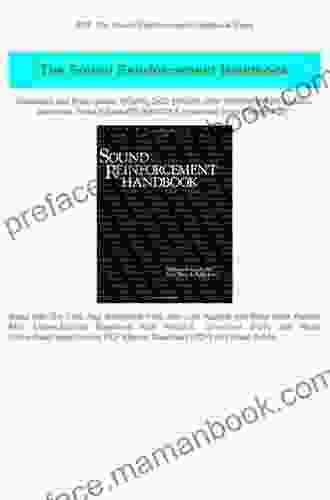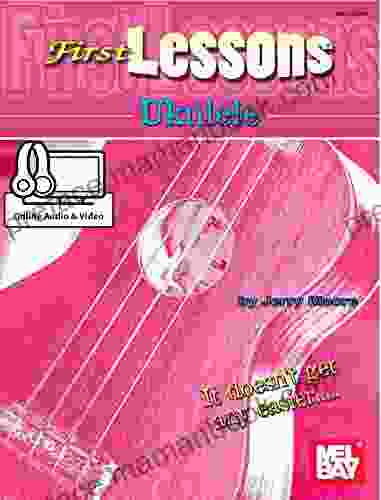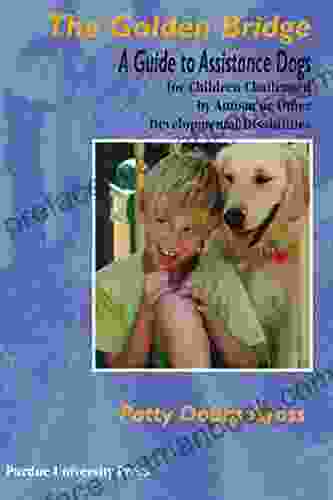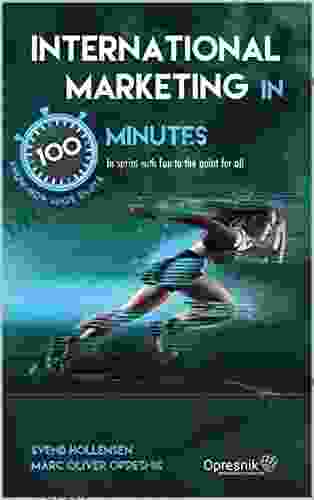A Comprehensive Guide to Assistance Dogs for Children Challenged by Autism or Other Disabilities

Assistance dogs can provide invaluable support to children who face challenges due to autism or other disabilities. They can help improve their quality of life, safety, and independence. This guide will provide a comprehensive overview of assistance dogs, including their benefits, types, training, how to obtain one, and how to care for them.
4.3 out of 5
| Language | : | English |
| File size | : | 3934 KB |
| Text-to-Speech | : | Enabled |
| Enhanced typesetting | : | Enabled |
| Word Wise | : | Enabled |
| Print length | : | 251 pages |
| Screen Reader | : | Supported |
Benefits of Assistance Dogs
Assistance dogs offer a wide range of benefits for children with autism or other disabilities, including:
- Improved safety: Assistance dogs can help prevent children from wandering away or getting into dangerous situations. They can also provide support during seizures or other emergencies.
- Increased independence: Assistance dogs can help children with everyday tasks, such as opening doors, picking up objects, and getting dressed. This can help them gain a greater sense of independence and self-confidence.
- Enhanced social skills: Assistance dogs can help children develop social skills by providing a non-judgmental companion they can interact with. They can also help children learn how to read social cues and interact appropriately with others.
- Reduced anxiety and stress: Assistance dogs can provide comfort and security to children with autism or other disabilities. They can help reduce anxiety, stress, and repetitive behaviors.
- Increased physical activity: Assistance dogs can encourage children to engage in more physical activity by providing a fun and motivating reason to get up and move around.
Types of Assistance Dogs
There are several different types of assistance dogs that can benefit children with autism or other disabilities, including:
- Service dogs: Service dogs are trained to perform specific tasks to assist their handler. For children with autism or other disabilities, service dogs can provide a wide range of services, such as providing mobility assistance, retrieving objects, opening doors, or alerting to environmental hazards.
- Therapy dogs: Therapy dogs are trained to provide emotional support and comfort. They can visit schools, hospitals, and other settings to help children with autism or other disabilities develop social skills, reduce anxiety, and improve their mood.
- Autism assistance dogs: Autism assistance dogs are specifically trained to help children with autism. They can provide a variety of services, such as providing physical support, preventing wandering, calming repetitive behaviors, and providing comfort during social interactions.
- Mobility assistance dogs: Mobility assistance dogs are trained to assist people with mobility impairments. For children with autism or other disabilities, mobility assistance dogs can provide support with walking, getting in and out of chairs, or picking up objects.
Training Assistance Dogs
Assistance dogs undergo rigorous training to learn how to perform their specific tasks. Training typically takes several months to a year or more. Dogs are first trained in basic obedience commands, such as sit, stay, and come. They then learn more advanced tasks, such as retrieving objects, opening doors, or providing mobility assistance.
Assistance dogs are also trained to be attentive to their handler's needs and to respond to their commands. They must be able to focus on their tasks, even in distracting environments. They must also be able to remain calm and under control, even in stressful situations.
How to Obtain an Assistance Dog
There are several different ways to obtain an assistance dog. You can:
- Contact a service dog organization: There are many service dog organizations that train and place assistance dogs with people who have disabilities. You can find a service dog organization in your area by searching online or contacting your local disability support organization.
- Train your own dog: You can also train your own dog to be an assistance dog. However, this is a complex and time-consuming process. It is important to consult with a professional dog trainer if you are considering training your own dog.
- Adopt a retired assistance dog: Some service dog organizations place retired assistance dogs with people who need them. Retired assistance dogs may not be able to perform all of the tasks they were trained to do, but they can still provide companionship and support.
Care for Assistance Dogs
Assistance dogs require specialized care to ensure their health and well-being. This includes:
- Regular veterinary checkups: Assistance dogs should have regular veterinary checkups to ensure they are healthy and up-to-date on their vaccinations.
- Proper nutrition: Assistance dogs should be fed a high-quality diet that is appropriate for their age, weight, and activity level.
- Grooming: Assistance dogs should be groomed regularly to keep their coat clean and free of mats. They should also be bathed as needed.
- Exercise: Assistance dogs need regular exercise to stay healthy and fit. They should be taken for walks or runs every day, and they should have access to a safe place to play and explore.
- Training: Assistance dogs should continue to be trained throughout their lives to ensure they are performing their tasks safely and effectively. They should also be trained to adapt to new situations and environments.
Assistance dogs can provide invaluable support to children who face challenges due to autism or other disabilities. They can help improve their quality of life, safety, and independence. If you are considering getting an assistance dog for your child, it is important to do your research and find a reputable organization that can provide you with a well-trained dog that is right for your child's needs.
4.3 out of 5
| Language | : | English |
| File size | : | 3934 KB |
| Text-to-Speech | : | Enabled |
| Enhanced typesetting | : | Enabled |
| Word Wise | : | Enabled |
| Print length | : | 251 pages |
| Screen Reader | : | Supported |
Do you want to contribute by writing guest posts on this blog?
Please contact us and send us a resume of previous articles that you have written.
 Top Book
Top Book Novel
Novel Fiction
Fiction Nonfiction
Nonfiction Literature
Literature Paperback
Paperback Hardcover
Hardcover E-book
E-book Audiobook
Audiobook Bestseller
Bestseller Classic
Classic Mystery
Mystery Thriller
Thriller Romance
Romance Fantasy
Fantasy Science Fiction
Science Fiction Biography
Biography Memoir
Memoir Autobiography
Autobiography Poetry
Poetry Drama
Drama Historical Fiction
Historical Fiction Self-help
Self-help Young Adult
Young Adult Childrens Books
Childrens Books Graphic Novel
Graphic Novel Anthology
Anthology Series
Series Encyclopedia
Encyclopedia Reference
Reference Guidebook
Guidebook Textbook
Textbook Workbook
Workbook Journal
Journal Diary
Diary Manuscript
Manuscript Folio
Folio Pulp Fiction
Pulp Fiction Short Stories
Short Stories Fairy Tales
Fairy Tales Fables
Fables Mythology
Mythology Philosophy
Philosophy Religion
Religion Spirituality
Spirituality Essays
Essays Critique
Critique Commentary
Commentary Glossary
Glossary Bibliography
Bibliography Index
Index Table of Contents
Table of Contents Preface
Preface Introduction
Introduction Foreword
Foreword Afterword
Afterword Appendices
Appendices Annotations
Annotations Footnotes
Footnotes Epilogue
Epilogue Prologue
Prologue Dale W Tomich
Dale W Tomich Ben Kane
Ben Kane Mark Lawrence
Mark Lawrence Juan Manuel Leiva Macias
Juan Manuel Leiva Macias Blue Skeleton
Blue Skeleton Carol Oates
Carol Oates Allie Boniface
Allie Boniface Jenny Hung
Jenny Hung Barton Zwiebach
Barton Zwiebach Kelly Moore
Kelly Moore P W Singer
P W Singer Toni Lansing
Toni Lansing Alison Stuart
Alison Stuart Regina G Richards
Regina G Richards A M Caplan
A M Caplan Ellis Avery
Ellis Avery Frederick M Hess
Frederick M Hess Caitlin Lucas
Caitlin Lucas Karthik C
Karthik C Lillian Falciglia
Lillian Falciglia
Light bulbAdvertise smarter! Our strategic ad space ensures maximum exposure. Reserve your spot today!

 Jonathan HayesUnveiling the Enigmatic Vavine Curse Laredeaux: A Comprehensive Exploration...
Jonathan HayesUnveiling the Enigmatic Vavine Curse Laredeaux: A Comprehensive Exploration...
 David PetersonHow to Create Products and Services Customers Want: The Strategyzer Approach
David PetersonHow to Create Products and Services Customers Want: The Strategyzer Approach Ernesto SabatoFollow ·3.8k
Ernesto SabatoFollow ·3.8k Thomas MannFollow ·12.9k
Thomas MannFollow ·12.9k Walter SimmonsFollow ·10.4k
Walter SimmonsFollow ·10.4k Stephen KingFollow ·5.9k
Stephen KingFollow ·5.9k Roger TurnerFollow ·10.5k
Roger TurnerFollow ·10.5k Charles BukowskiFollow ·6.5k
Charles BukowskiFollow ·6.5k Herb SimmonsFollow ·5.1k
Herb SimmonsFollow ·5.1k Jimmy ButlerFollow ·17.6k
Jimmy ButlerFollow ·17.6k

 Vincent Mitchell
Vincent MitchellUnveiling the Enchanting Tale of Plant Reproduction: A...
Plants, the silent yet vibrant...

 Sam Carter
Sam CarterDelve into the Enigmatic World of "Relative Murder: A...
In the realm of mystery and suspense, the...

 Richard Simmons
Richard SimmonsThe Sound Reinforcement Handbook: A Comprehensive Guide...
In the realm of live sound engineering, The...

 Leo Tolstoy
Leo TolstoyEnter the New Era of Cyberwar: Unmasking the Kremlin's...
`` Prologue: The Digital...

 Brenton Cox
Brenton CoxFirst Lessons Ukulele Bridget Baker: A Comprehensive...
Embarking on a musical journey with the...
4.3 out of 5
| Language | : | English |
| File size | : | 3934 KB |
| Text-to-Speech | : | Enabled |
| Enhanced typesetting | : | Enabled |
| Word Wise | : | Enabled |
| Print length | : | 251 pages |
| Screen Reader | : | Supported |










